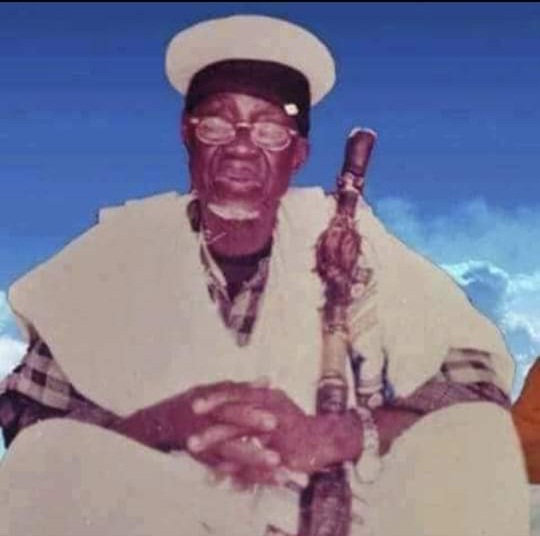By Abdul Rasheed Gariba
Introduction
When the Gonja Kingdom was created, the founding founders established a central authority, consolidating power and fostering a sense of cohesion within the kingdom. However, the succession arrangement of the Yagbon throne, which had functioned smoothly, faltered following the death of Yagbonwura Kurbang Seidu Dushi of Bole in 1895. This precipitated a fragmentation of central authority as divisions within Gonja began to assert autonomy and self- governance.
It is significant to mention that this lack of cohesive central leadership not only destabilized the political system but also disrupted the religious fabric of the Gonja state. It resulted in the dissolution of the centralized Gonja Imamship (Yagbon Imamate), with Imams previously aligned with central authority being truncated. Consequently, the spiritual cohesion that once underpinned Gonja society eroded, exacerbating the challenges faced by the kingdom.
Therefore, the need to return to the previous arrangement becomes imperative to ensure the smooth running of the kingdom. A pivotal moment in this regard occurred during the reign of Yagbonwura Mahama Dagbonga.
Mumuni Kankan As The Yagbon Imam
After the reunification of the Gonja state with a central authority, the centralized Gonja Imamate was reinstated in 1948, with Mumuni Kankan ascending to the position of Grand Mufti of the Gonja state (Yagbon Imam).
Remarkably, he assumed the role at the tender age of 20, thus becoming the youngest Yagbon Imam ever in Gonja’s history. The decision to appoint him over his father, Adama Mumuni, stemmed from the contention within the Sakpare clan of Buipe.
While Adama was initially considered, concerns about his advanced age and the perception of Mumuni Kankan as more active and knowledgeable in the Qur’an led to his selection. Adama was persuaded, and Imam Mumuni Kankan symbolically honored his father by giving him a white ram.
Due to his youth and relative inexperience, Imam Kankan’s uncles and other relatives relocated to Damongo to provide guidance and support, marking his pioneering move as the first Yagbon Imam to reside in Damongo. His tenure lasted an impressive 73 years, from 1948 to 2001, making him the longest-serving Imam in Ghana’s history.
Throughout his leadership, he collaborated with eight different Kings of the Gonja state, from Yagbonwura Awusi to Yagbonwura Doshi, setting a model for contemporary Gonja Imamship.
Imam Kankan’s authority extended to the appointment of Imams for the Damongo central mosque, where they led Friday prayers on his behalf. The symbolic transfer of the sacred staff and a prepared sermon conferred legitimacy upon these appointees.
Under his direction, weddings, funerals, and naming ceremonies were meticulously overseen; their execution in Damongo was contingent upon his approval. In his absence, a designated representative assumed responsibility, ensuring that all financial contributions for special prayers were appropriately managed.
Beyond ceremonial duties, the Yagbon Imam presided over cases every Friday after the Jum’ah prayers. His jurisdiction extended to resolving various religious and social disputes, including those about marriage, divorce, and reconciliation.
Assisted by a council of esteemed elderly women, the Imam diligently presided over these cases with wisdom and discernment.
In cases concerning marital discord arising from allegations of impotence or infidelity, the women in his cabinet played a crucial role. They meticulously investigated such matters, delving into the intricacies of the disputes and presenting their findings to the Imam for careful consideration and judgment.
Moreover, Imam Kankan didn’t confine his responsibilities solely to religious affairs but extended his purview to address broader societal challenges, notably the financial hardships faced by families. When confronted with instances where financial incapacity became grounds for divorce, Imam Kankan intervened through the Jakpa palace. He facilitated tangible support measures, such as providing animals or farm produce, to enable families to expand their farms and mitigate financial strains.
Imam Kankan’s influence transcended the boundaries of Gonjaland, resonating with Gonjas residing beyond the region who sought his counsel in resolving disputes and navigating complex familial matters. His dedication to justice and community welfare earned him profound respect and admiration, solidifying his status as a revered leader and arbiter of peace within and beyond his domain.
He represented the Gonja state in various conferences, exemplified by his participation in the 1985 Conference of Imams organized by the Saudi government at the University of Ghana, Legon. The conference was aimed at empowering Imams and addressing challenges within their communities, reflecting Imam Kankan’s commitment to broader Islamic discourse and welfare.
18th February, 2024.




